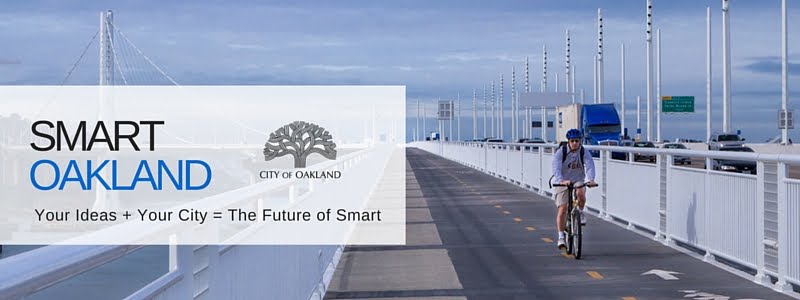Sherri wrote, "Universal accessibility in all modes of travel is a prerequisite to any transportation improvements. Regulations and our civil rights laws are fairly clear on what is required of transportation providers, but, we have entered a new frontier with the proliferation of TNCs like Uber and Lyft. We should be concerned about their lack of wheelchair accessible vehicles and reliable on-call service for persons with disabilities, and seek solutions that allow these types of businesses to thrive thanks to their ability to serve everyone. With Uber coming to town, we should use this as an opportunity to make Oakland a leader in multimodal transportation accessibility."
Shawn added, "Great point! Often times plans omit the "unsightly" ADA requirements. However planning for ALL users is a mistake we cannot afford to make."
These comments offered by Sherri and Shawn force us to ask what an important question: What could be smarter than universal accessibility? What do you think?

Equal access to the transportation network is an important objective, to be sure. But we can't just replace Paratransit with TNC's, or force TNC's to operate a fleet of accessible vehicles without high subsidies or allowing them to charge high fees. But in a smart city, perhaps we can track trip requests, forecast trip origins and destinations and make that service more efficient. In a smart city, wheelchairs have DSRC radios that allow wheelchairs to automatically request an equipped vehicle (bus or TNC or paratransit, whatever is closest) when approaching a bus stop. A wheelchair or sight-impaired pedestrian can automatically be detected at a traffic signal without needing to push a button. Equipped wheelchairs can collect data abound street and ramp grades and report where sidewalks are cracked or ramps are too steep. Oakland has a few senior centers and a Center for the Blind, where these technologies can be piloted. Food for thought.
ReplyDeleteI like the innovative thinking here. But I am concerned that we are talking about piloting future technologies when many people with disabilities are living below poverty or not much above it. So they are not likely to be able to access advanced technology devices for years. To get a power wheelchair for people with mobility challenges is a huge cost barrier. To get a chair with broadband technology when most over 30% of the population with disabilities doesn't even have that technology in their homes doesn't seem likely.
Delete